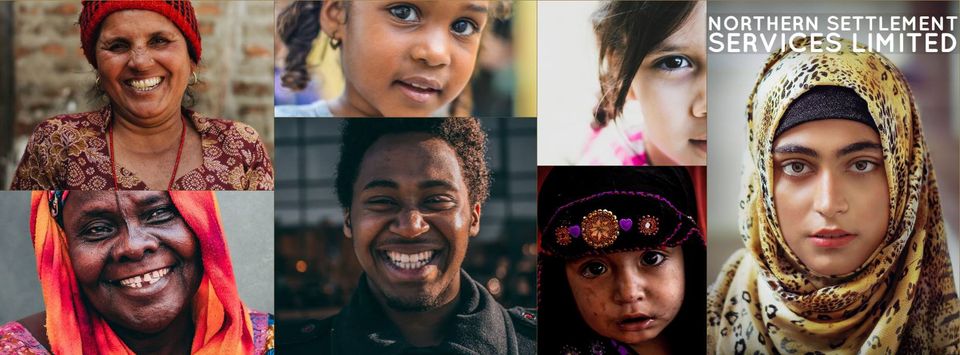Covid-19, like all viruses, exploits the connectedness of living organisms for its survival. Throughout the global pandemic, every citizen of the world has had to sacrifice their connectedness to secure the health of our societies.
New migrants are people who have had their connectedness set back to zero through displacement. The inevitable need to make new ties in Australia cannot be avoided. Connection is essential to a self-reliant, dignified and equitable life. The Newcastle based Northern Settlement Services (NSS) is an organisation that works to build resilience, relationships and mutual understanding within our multicultural community.
Growing up in Tamworth in the 90s and 2000s, I found it hard to believe that a country could run out of safe places to live. A lot of Tamworth’s residents, my family included, had been living there for less than a generation. My mum came to Australia after marrying my Anglo-Australian Dad in Indonesia. They settled down in Tamworth a few years later. Mum skipped her language classes at TAFE because her English was already fluent from working at a hotel in Yogyakarta. The school transferred her to a women’s business class. Today, she has over 20 years of experience running her own childcare business and organises a popular social fitness group.
Although the Anglo-Australian residents still make up Tamworth’s majority, looking back, I can appreciate the invaluable contribution that the town’s few international migrants brought with them. Vietnamese people ran the main street bakery. Filipino kids were the only other Asians at my school and it was a Laotian family who gave me my first job as a kitchen hand. These trailblazing migrants were what made the town my home and they led the way for Tamworth to become the culturally thriving regional centre it is today.
But these people didn’t simply slot into the community by accident. Many barriers prevent migrants from building a life in their new country. The most prominent barrier is language. When a language gap makes things easier done than said, many migrants can feel reluctant to offer anything beyond their trade skills. On top of this, navigating new institutions such as banking, policing, welfare, citizenship and health can lead to hopelessness and isolation or, at the very worst, violence and exploitation. Complex new systems can frustrate and overwhelm even expert users of English.
Just as importantly, migrants need the confidence to build personal relationships in their new community. Recent adversities such as Covid-19, the Black Summer bushfires and an increase in domestic violent extremism have made community capacity for mutual support more crucial than ever before. In a crisis, any barriers to connection can transform discomfort into danger. Information, aid and co-operation become essential lifelines.
In the words of NSS’ Settlement and Communities Manager Debbie Carstens: ‘It’s about going from that smile in the street to meaningful and collaborative relationships.’
In 2021, Northern Settlement Services has received support from the NSW government as part of the COMPACT initiative (Community, Partnership, Action). Inspired by acts of solidarity by communities in response to the 2014 Martin Place Siege, COMPACT aims to increase community resilience and cohesion through increased support for community organisations, charities, and other social institutions.
Using this increase in government support, the NSS planned a series of multicultural youth exchange programs modelled on previously successful yearly youth exchange program between Newcastle and Manning Valley.
Organised by Multicultural Youth Worker and Afghan migrant Mohammad Sami Zakhil, the COMPACT funded youth exchange program was a plan to take roughly 20 teenagers and young adults to regional towns such as Taree, Port Macquarie, Dungog, Armidale and Forster. In these communities, they would meet with local multicultural youths and, through activities such as sports, sharing food and bushwalking, build communication networks and encourage cultural exchange.
‘Some people have hate in their heart,’ Sami told me over Zoom, ‘By knowing people from other cultures, people can let go of their hate. Communication brings peace and unity.’
These youths, with heritage in Arabic, African, South and South East Asian countries, would have shared countless stories and experiences as they created new relationships. Although the lockdown has halted these plans for the moment, NSS is working to pick up where they left off as soon as it is safe to do so.
Importantly, these programs and activities were chosen by the participants themselves. Which is a constant consideration with any NSS program. The process of consultation and feedback puts organisation in the hands of the community. Agendas, action groups and plans are all constructed with direct input from the people who it will affect. After all, speaking for oneself is a fundamental requirement for human dignity.
With the impending effects of climate change and growing political instability, these lifelines will need to be continually strengthened to make sure we can support each other. Through mutual understanding, conversation and capacity building, we can ensure that the word “multicultural” doesn’t simply mean different cultures living next to each other. Instead, multicultural can mean a dynamic, syncretic and indivisible reflection of who we are as a nation.

